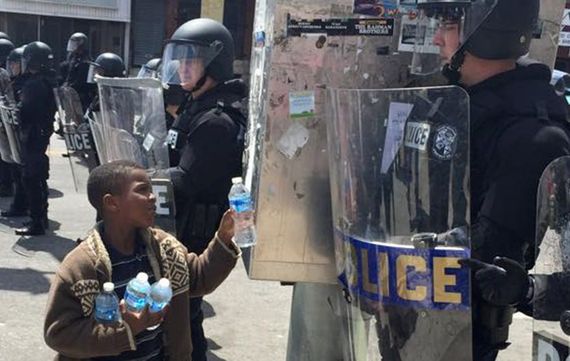Picture a scenario. Each time you attempt to speak to someone they walk away from you while you are speaking, act as though they are listening, but then their face is constantly facing down to their smart phone, magazine, etc. If this is consistently your experience it can drive you to the point of feeling that speaking up for yourself is futile. This experience could possibly instigate feelings of unworthiness. This experience could also promote a level of deep-rooted anger that an individual could internalize and or project onto to other people. The experience of not being heard or misunderstood can also cause the individual to become so frustrated it can promote a level of opposition that the person feels they have no alternative but to make the person who they feel is inflicting this oppression, respond aggressively.
Since 2014, I have worked with the SPARK Mentoring Program at the University of West Georgia. This transformative community-based program seeks to help youth begin to remove the metaphorical tape from their mouths, and empower them through their voices. What is unique to SPARK is the intentional philosophy and approach in working with youth. The program utilizes an alternative approach where university students connect with youth through icebreakers, improvisation, art, and West African drumming. SPARK places major emphasis on not attempting to change youth, but solely seeing youth as sacred. This concept of sacred is derived from Martin Buber's I and Thou theory, which promotes the sentiment that we deeply value our daily interactions with one another.
The crux of SPARK is an activity where youth and university students have the opportunity to share their life stories, or COSMOS, with everyone. The COSMOS promotes a community where everyone's voice matters. As people develop the courage to share intimate details of their lives, others have the courage to be present and listen. This collective act of vulnerability helps to normalize challenges that many people experience, but also assists in providing confidence and support for youth and mentors in knowing that they are not alone. As such, this cultivated relationship between youth and mentors helps to diminish the traditional power dynamics of adult to child. Through the reciprocity of the relationship they begin the process of refraining from judging the other person, and learning how to empathically listen and begin to comprehend different perspectives.
This mentoring program, reminds me of the necessary empathic understanding, which is desperately needed in our communities that endure incidents where Freddie Gray was killed. It is easy to judge Baltimore and say what people should do. Ask yourself if you consistently saw people in your community unfairly treated and stifled systemically; what would be your reaction? Witnessing these traumas repeatedly creates systemic injuries for communities, and can instigate the same aggressive reaction by which the community feels was thrust upon them.
This is my intention for Baltimore, and other communities: being a part of transformative solutions by seeking to understand, rather than flippantly characterizing communities with stereotypical rhetoric.
